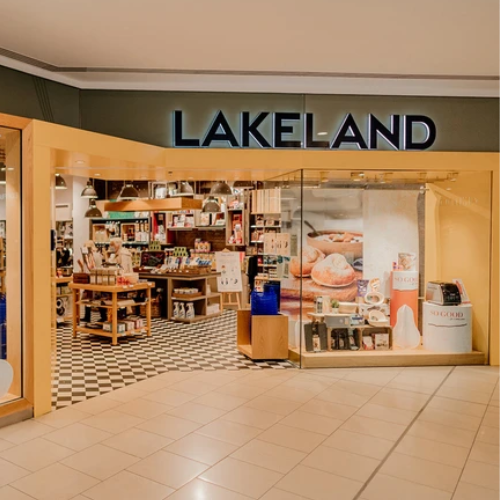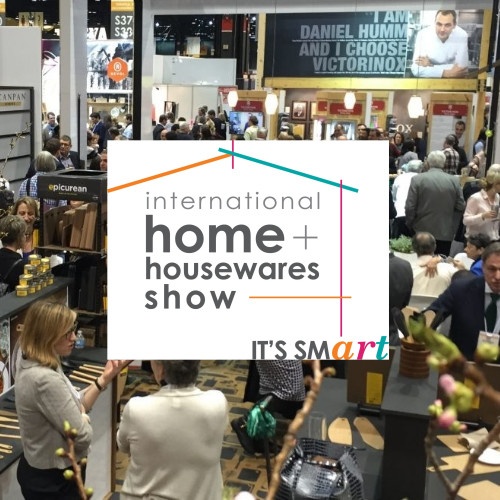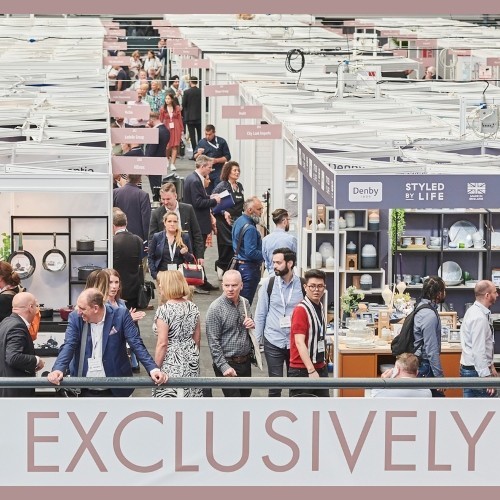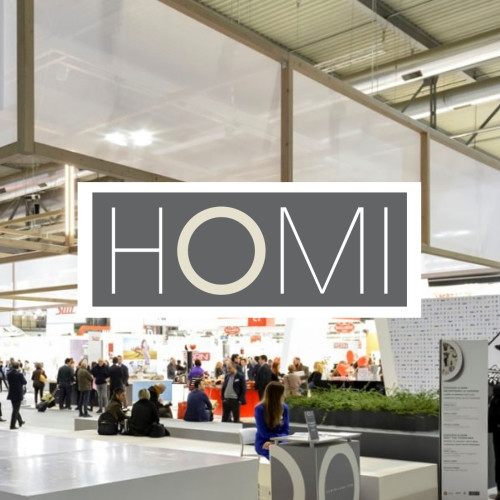Start Licensing’s Ian Downes visited Exclusively this week (August 24-25) to find a myriad of great ways that housewares licensees are using celebrities, brands and characters. Ian writes:
When I arrived mid-morning at the Business Design Centre it was great to hear the buzz of a trade show as visitors and exhibitors got on with the business of doing business. If the benchmark used as a measure to gauge whether ‘normal’ business has resumed are trade shows, I think we can say things are getting back to normal.
I also saw a number of top retail names on the badges of visitors that walked pass me including Asda, Tesco, Sainsbury, John Lewis and Amazon. I wasn’t being nosey, and I realise my badge spotting survey is not robust research, but it was certainly encouraging to see buyers of that calibre visiting the show. This has always been a show I have enjoyed attending as it is a focused trade show and populated with market leading companies.
This year I was looking forward to it even more as it was the show where Meyer decided to launch its range of Nadiya Hussain cookware and bakeware. The range is being launched in tandem with the Prestige brand. Nadiya is one of Start Licensing’s clients and this is a deal that I have worked on quite closely. Even an ‘industry veteran’ like myself still gets excited when new products that you are involved in are launched.
Even more so in this case as the range grew out of a new business meeting I had with Meyer’s md during lockdown. I actually only met Mark Ivory from Meyer for the first time in person at the show as all of our meetings had been conducted over Zoom. Indeed, most of the development work for the range has been done remotely as well.

Nevertheless, Nadiya and Prestige have managed to develop a first class range and one that has very clearly benefitted from Nadiya’s expertise. A key consideration for Nadiya in all her licensing ventures is that she is hands-on and that the ranges developed are authentic. This was a key consideration in the selection of Meyer and Prestige for this range. There has been good dialogue between all parties to create a range that reflects Nadiya’s wishes, but also her character and approach to cooking.
Key elements include the use of a signature pattern to decorate the product, whether that is an imprint in the bakeware or a coloured pattern surface on the cookware. In my view it is essential that when developing licensed ranges featuring brand personalities the personality has to be directly involved in developments. In this case this is a bespoke range. It is not one that has been taken off the shelf and badged with a brand.
Interestingly I chatted with Meyer about the retailer reaction to the range and how Meyer was selling it to retailers. A key part of the pitch was the fact that Nadiya was heavily involved in the development processand that the range’s style matches Nadiya’s personality. Retailers were keen to establish the credentials and credibility of the range. Over previous years there have been some licensed ranges featuring celebrities that haven’t prospered and this has arguably been because they didn’t have real depth.
It remains to be seen how Prestige’s Nadiya Loves range will sell in and sell through, but early signs are encouraging and it certainly made a favourable impression on buyers at the show.
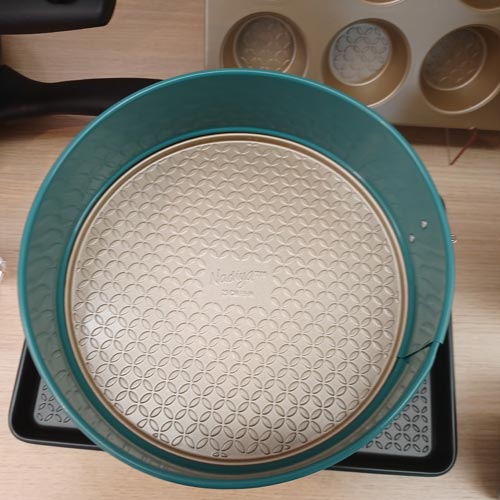
There were a number of other examples of ranges featuring personalities at the show. Salter has worked with Heston Blumenthal for ten years apparently and has developed a range that includes scales and thermometers. Chatting to Salter it is clear that this is another range that is really authentic, with Heston Blumenthal being hands-on. Indeed I understand Heston uses the products in his own kitchens at The Fat Duck restaurant. A real vote of confidence and a measure of the quality of the range.
Another interesting feature of this Salter range is that they all share a sleek design identity that works well in the category. The products have a contemporary feel to them and successfully convey technical authority. I can imagine Heston feels comfortable with the design and presentation of the range. This is a great example of a long-lasting partnership and also in carving out a significant niche to succeed in.
A further layer of partnership that Salter has introduced are a set of glossy recipe cards featuring Heston’s recipes and cooking advice. The cards – which include recipes for cookies and cooking advice for roasts – add value to the partnership well, create retail visibility and show Heston is really involved in the partnership.

Another interesting example of a brand personality featuring within a specific category was a range of crystal glassware developed by Stolzle Lausitz under licence from wine expert Olly Smith.
A skill in licensing is playing to your strengths and building a campaign from the centrepoint of your brand – in this case it seems natural for a wine expert to develop and recommend glassware.
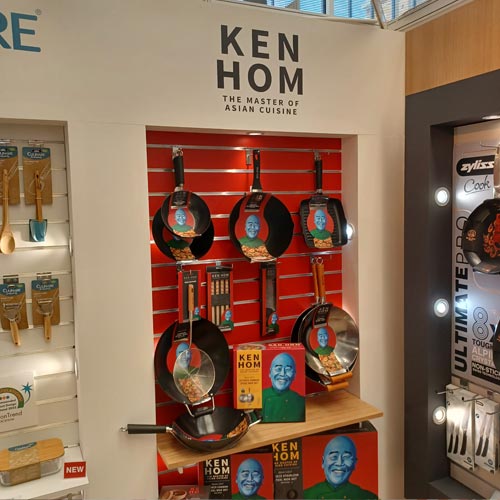
Likewise it makes sense to see a range of Ken Hom cookware that focuses on woks trading on Ken’s status as ‘The Master of Asian Cuisine’. This range was presented with a contemporary style and a distinctive image of Ken. You can imagine that the licence has developed the range in such a way that it can be bought easily by retailers and fit into a set space to cover off the wok category. It is a ready made solution for retailers. The range has also been developed seemingly with gifting in mind with boxed sets such as a 10-piece wok set. This sort of packaging and presentation makes it easy for consumers to buy into a range.
Other well known celebrities that had ranges featured at the show included Mary Berry and James Martin. It is clearly a competitive category of licensing, but in my view it seems to be one that has settled down a bit and is much more focused. I think retailers and maybe consumers grew a little tired of quick win ranges and are now looking for products that have been developed in an authentic way and survive scrutiny.
In the modern age, a range also has to come with a support package – in the case of Nadiya this includes social media content, photography and videos.
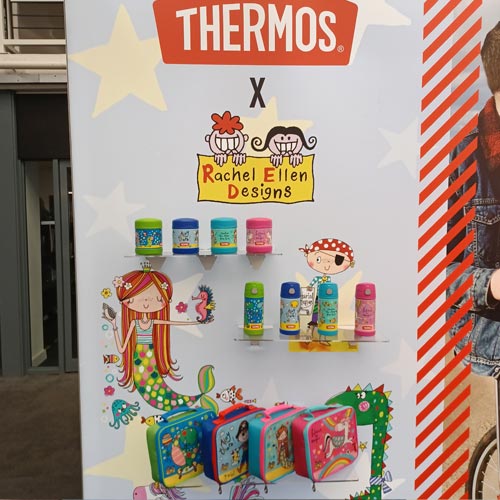
Licensing wasn’t just confined to celebrity ranges though. As you might expect character licensing cropped up on a number of stands and categories, most notably children’s lunchware.
Within this category it was refreshing to see Thermos offering a licensed range and doing so with some commitment. It has a range featuring artist and illustrator Rachel Ellen. It featured prominently on the stand and includes flasks and lunchbags. It has made good use of Rachel Ellen’s distinctive visual style to develop a bright and colourful range.
Rachel Ellen has built up a strong profile in retail over the years and it is easy to see her existing stockists buying into this range. It will fit into existing ranges well and is easily merchandised.
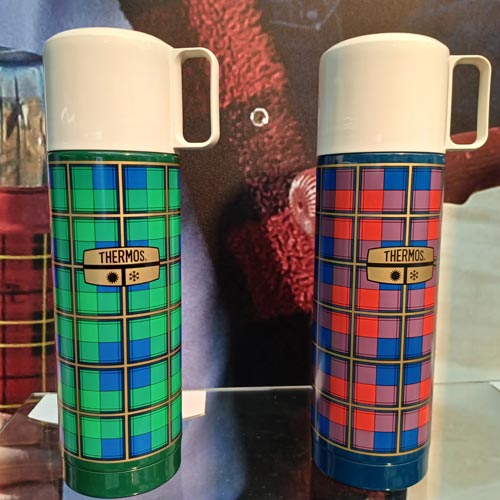
For Thermos it is a brand they can trust and one that has a certain longevity. Thermos is a well known and trusted brand. Short-term licensing probably doesn’t suit it – it is looking to build longevity. The stand also featured some own brand products that were reviving Thermos’ classic tartan style designs from the 1960s and 1970s. Seeing these Thermos flasks on the stand brought back memories of my Nan’s flask and her pouring out cups of tea on the South Bank in the 1970s. Thermos is a brand that can and does bring back warm memories for consumers. I liked the way it is approaching licensing and also reviving its own classic designs.
The National Trust also had a presence at the show with a range of toughened Glass Worktop Protectors from Eddingtons. The collection is divided into a Nature Collection featuring the likes of Puffins, Oyster Catchers and Brown Hares. Featuring art from watercolourist Louise Nisbet, the range taps into the fact that the National Trust has lots of land under its stewardship and is heavily involved in conservation work.
The second range is a nod to the Trust’s heritage with designs based on patterns from one of the Trust’s properties Alfriston Clergy House. It is a great example of a heritage licensor making good use of its archive. The National Trust seems to be pushing on well in the licensing market and its segmented approach to design seems to be proving popular.
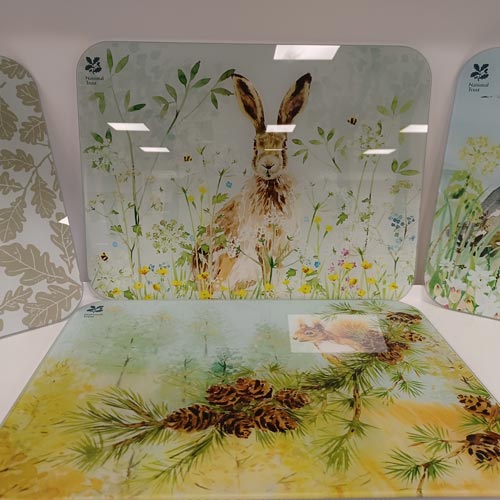
Another interesting licensing range I spotted was from Addis. It has rather enterprisingly secured a licence from P&G for Fairy Liquid and has used the Fairy brand to develop a range of kitchen products such as scourers, washing up bowls and sponges. The range makes great use of Fairy’s iconic logo, packaging style and signature green branding. Addis presented the product really well on its stand, making it easy for retailers to imagine how it could look in their store.
Most products were in shelf ready boxes that can be torn open to create shelf displays. It seems to be a range that will create a real impact at retail and could be a one stop solution for a lot of retailers. It is a clever bit of licensing and a reminder that some brands can deliver licensing results in categories that are not part of the ‘normal’ licensing plan. Again it is about taking the right approach and going back to basics – matching licensed brands with products in an authentic way and taking a focused approach to NPD.
It was a real boost for me to see the Nadiya Loves range on show at Exclusively. A reminder that it is good to talk to and meet new people, even virtually. It is also a reminder that it is important to take the right approach to licensing and think long-term. If you can get things right from day one in terms of deal, design and development there should be more chance of creating a long-lasting licensing programme. I think Meyer has done a great job and am hopeful that its bespoke approach will see it rewarded with a good uptake from retailers and good sell through.
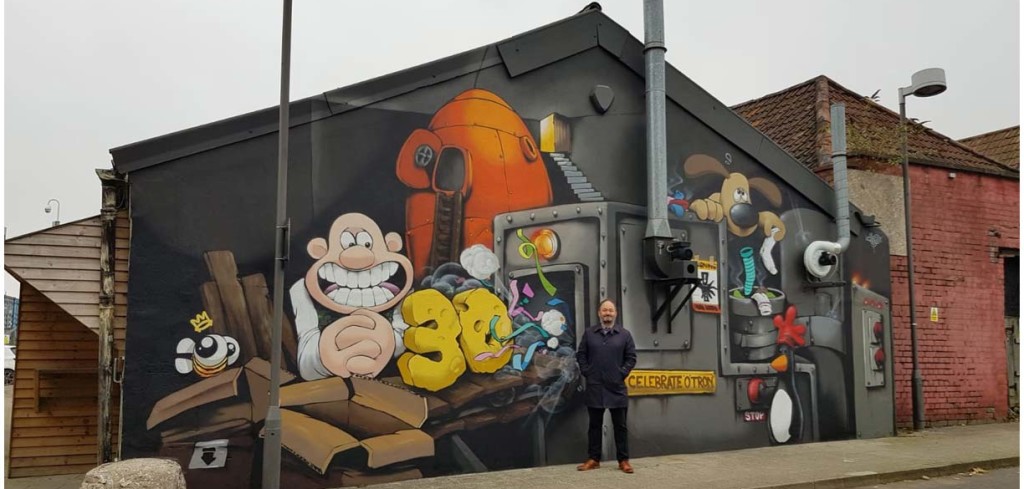
Ian Downes runs Start Licensing, an independent brand licensing agency. His Twitter handle is @startlicensing – he would welcome your suggestions for what to look out for.












